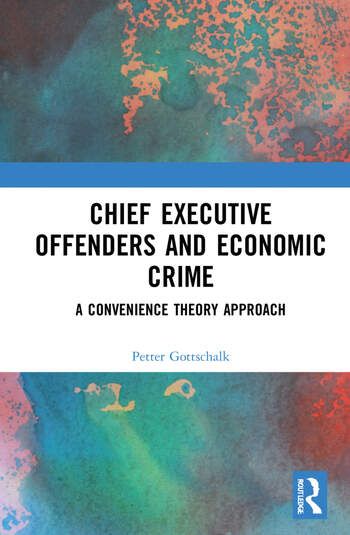We will be closed from 5pm Thursday 17th April for the Easter Bank Holidays, re-opening at 8.30am on Tuesday 22nd April. Any orders placed during this period will be processed when we re-open.

This book examines the role of Chief Executives in white collar crime from a convenience theory perspective. Privileged position status, legitimate resource access, institutional deterioration, lack of control and guardianship, and criminal networks such as cartels are some of the typical factors of opportunity convenience when chief executives commit white-collar crime. By presenting and discussing such factors, this book aims to clarify vulnerabilities in organizational settings when the deviant chief executive takes advantage of their position for criminal means. The book applies convenience theory to explain a variety of cases of corporate crime committed by chief executives.
The work will be a valuable resource for academics and researchers in the areas of criminology and criminal justice, law enforcement policy, business management and organizational behavior.